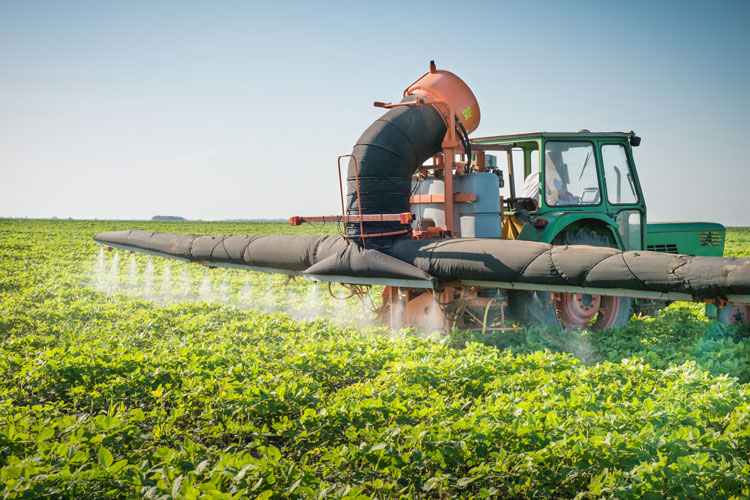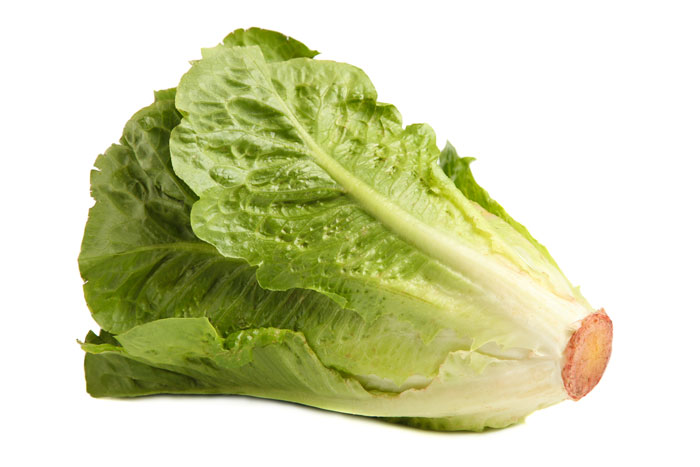An interview with the Center for Food Safety
Posted: 11 November 2020 | Jaydee Hanson | No comments yet
The Center for Food Safety’s Jaydee Hanson explains how he came to be Policy Director, and recounts some of the NGO’s past battles and its next focus.


For 22 years, the Center for Food Safety (CFS) has been promoting organic, ecological and sustainable processes. Here, New Food’s Editor interviews its Policy Director, Jaydee Hanson, about his own professional experience, the CFS’s aims, previous successes, and future obstacles to overcome.
The beginning
Hanson explained that his interest in human genetics, synthetic biology, genome editing and nanotechnology began early on. “There were a lot of books about widespread famine when I was growing up; it inspired me to attend graduate school to better understand how we could manage resources to save people and the planet. I became especially fascinated with fisheries due to it being such a key protein source for many countries.”
This interest brought him to Washington, US, where he worked as a specialist for the National Marines Fisheries Service. It was his religious affiliation, however, that led to his current position within the CFS. “I was recruited by the United Methodist Church as part of its environment programme – which later became the climate and genetic science programme – as its first scientist. Through this I was introduced to Andrew Kimbrell, public interest attorney and founder of the CFS; when I was ready to move on from the Methodists, Andrew asked if I would be interested in a role. I’ve now been with the CFS for 16 years.”
Before it became the CFS in 1998, the organisation was a part of the International Center for Technology Assessment (CTA), a non-profit which assesses the impacts of technological developments on society.
“The CTA was doing so much within the food space; it made sense to create a free-standing centre. Our ultimate goal at the CFS is to ensure the food we consume is safe and nutritious and not grown in a way that is damaging to the environment.”
For 22 years, the Center for Food Safety (CFS) has been promoting organic, ecological and sustainable processes. Here, New Food’s Editor interviews its Policy Director, Jaydee Hanson, about his own professional experience, the CFS’s aims, previous successes, and future obstacles to overcome.
The beginning
Hanson explained that his interest in human genetics, synthetic biology, genome editing and nanotechnology began early on. “There were a lot of books about widespread famine when I was growing up; it inspired me to attend graduate school to better understand how we could manage resources to save people and the planet. I became especially fascinated with fisheries due to it being such a key protein source for many countries.”
This interest brought him to Washington, US, where he worked as a specialist for the National Marines Fisheries Service. It was his religious affiliation, however, that led to his current position within the CFS. “I was recruited by the United Methodist Church as part of its environment programme – which later became the climate and genetic science programme – as its first scientist. Through this I was introduced to Andrew Kimbrell, public interest attorney and founder of the CFS; when I was ready to move on from the Methodists, Andrew asked if I would be interested in a role. I’ve now been with the CFS for 16 years.”
Before it became the CFS in 1998, the organisation was a part of the International Center for Technology Assessment (CTA), a non-profit which assesses the impacts of technological developments on society.
“The CTA was doing so much within the food space; it made sense to create a free-standing centre. Our ultimate goal at the CFS is to ensure the food we consume is safe and nutritious and not grown in a way that is damaging to the environment.”
Funding and ethos
The CFS is a Non-Governmental Organisation (NGO), with the majority of its funding coming from private foundations.
Our ultimate goal at the CFS is to ensure the food we consume is safe and nutritious and not grown in a way that is damaging to the environment
“Sometimes that means that our coffees are leaner than we wished they would be, but we think it would be a conflict of interest if we were not independent from Government and corporate funding. It would also make it a lot harder to critic the Government and other companies,” Hanson said.
The NGO has approximately one million members, and according to Hanson, “a reputation for winning lawsuits against the Government”.
He continued: “We want to make sure the law is followed, that it is not twisted in a way that does not make sense, and that when the US Congress passes a law, it is implemented.”
The CFS has filed a number of lawsuits since its inception and depending on the case will recruit external experts to help present their findings. “Your staff can’t be experts in everything!” Hanson confirmed.
Successful lawsuits
In 2019, the organisation filed a lawsuit against the US Food and Drug Administration (FDA) for its “failure to establish a program to rapidly detect and respond to foodborne outbreaks”1 as part of the Food Safety Modernization Act (FSMA).
US Congress required the FDA to establish a food testing programme by January 2013, with testing to begin six months later. Congress also required the FDA to establish a publicly available registry of accreditation bodies and accredited laboratories, and to develop model standards that a laboratory must meet in order to be accredited.
Presently, the CFS is focused on genetically engineered (GE) or genetically modified organisms (GMOs) as they are more widely known in Europe
During these six years, a number of food safety illness episodes occurred, including 2018’s E. coli outbreak linked to romaine lettuce.2 The lawsuit sought a court order requiring the FDA to enact the FSMA laboratory accreditation requirements by a deadline with oversight to ensure completion.
In 2020, pursuant to this lawsuit, the CFS achieved a big win, with the FDA agreeing to establish a new programme. This was the NGO’s third successful case brought against the FDA to enforce FSMA requirements.
Hanson believes that more often than not, this (perhaps more forceful) approach is the only way to get things done. “We just need to keep suing and getting more courts to tell them [Government] they have to do it”.
Next battle is over GE
Presently, the CFS is focused on genetically engineered (GE) or genetically modified organisms (GMOs) as they are more widely known in Europe.
“We look at emerging technologies that not too many others have raised questions about before. We were one of the first groups to say, ‘If we are going to grow GE crops, what should the regulatory structure look like?’
“We had been fighting for GE food to be labelled for some time in the States, and Congress did pass a ruling which it delegated to the US Department of Agriculture (USDA). We were unsure about whether this was the right department to handle such matters and have since filed a lawsuit in federal court against the USDA because we believe the current mandate to be inadequate.”3


The 2018 E. coli outbreak linked to romaine lettuce helped the CFS to win its case against the FDA to establish a programme which rapidly detected and responded to foodborne outbreaks
Right now, highly refined ingredients from GE crops do not need to be signposted if no modified genetic material is detectable. Hanson explained that the Center is also against the way in which information is accessible – currently via a scannable QR code – which the CFS believes is discriminative of the poorer, elderly, rural and minority populations “who have lower percentages of smartphone ownership or live in areas in which grocery stores do not have internet bandwidth”.
The CFS is also challenging the use of language on such labels, which it claims are “restrictive” and “limit” on-packaging text to a lesser known term, namely ‘bioengineered’.
In a statement made in June 2018,4 Joseph Clayton, the CEO of the International Food Information Council (IFIC) Foundation, said, “Despite broad scientific consensus that GMOs are safe to consume, a majority of Americans seem to be convinced otherwise.” This was in response to findings from a survey it conducted, which revealed that 47 percent of respondents “would avoid GMO foods at least somewhat”.
Clayton added: “It’s a significant disconnect and it underscores the need for more creative public education on the science behind our food.”
When asked what is so bad about the inclusion of GMOs, Hanson told New Food: “It may or may not be such a bad thing, but consumers still want to know whether what they’re eating contains GE ingredients.”
Hanson also voiced concerns over GMOs’ influence of pesticide usage; there is heated debate over whether or not they have increased the use of pesticides. To elaborate: GE herbicide-tolerant crops have enabled the use of certain herbicides that destroy weeds without harming the crop.
For example, most GE crops are designed to be tolerant of glyphosate – a widely used herbicide. This has enabled farmers to switch from traditional (and more acutely toxic) herbicides to glyphosate without concern at first. The problem now is that there have been links made between this herbicide and cancer.5
Hanson points out that pesticide drift is also causing issues for those not using GM crops. “Let’s say you are growing soybeans that are resistant to a certain herbicide (dicamba); when these are sprayed, the drift carries it. If the next field does not have crops engineered to resist the pesticide, that farmer could lose their whole crop!”
The CFS is a strong supporter of organic farming and is looking to help make it easier for farmers to transition, but as in the UK, this ‘conversion period’ (ie, adapting to organic process), is time-consuming and difficult, with many hurdles to overcome.
Often, the change to organic methods can result in lower yields, which cannot be made up by a premium price for organic products during the conversion period.6
“One of the things that we have worked hard on, and we finally got into the last farm bill, is securing more money to help small farmers understand the requirements of organic agriculture and to help them pay the fees to be certified to enter the organic market,” said Hanson.
“Recently, we have seen some more progressive food companies paying farmers the organic price during the time that they are transitioning. This willingness has been driven by an increased demand for healthier food.”
It will be interesting to see how this next battle turns out for the CFS. But whatever the result, it seems likely that further research for and against GMOs and organic farming will ensue. Who knows when a definitive answer will be given – watch this space.
About the author
Jaydee Hanson
Jaydee is the Policy Director for the Center for Food Safety. His expertise includes emerging technology issues related to nanotechnology, synthetic biology, animal cloning, animal genetic engineering and gene editing. His Master’s degree in Biogeography and Resource Management is from the University of Hawaii.
References
- https://www.centerforfoodsafety.org/press-releases/5694/food- safety-groups-sue-over-fdas-failure-to-establish-food-testing- program
- https://www.newfoodmagazine.com/news/90889/results- sampling-assignment-ecoli-lettuce-revealed/
- https://www.centerforfoodsafety.org/press-releases/6100/ lawsuit-challenges-bioengineered-gmo-food-labeling
- https://foodinsight.org/survey-nearly-half-of-u-s-consumers- avoid-gmo-foods-large-majority-primarily-concerned-about- human-health-impact/
- http://sitn.hms.harvard.edu/flash/2015/gmos-and-pesticides/
- https://ec.europa.eu/info/food-farming-fisheries/farming/ organic-farming/becoming-organic-farmer_en
Issue
Related topics
Food Safety, Food Security, Genetic modification (GMO), Packaging & Labelling, Regulation & Legislation
Related organisations
Center for Food Safety (CFS), International Food Information Council (IFIC), National Marines Fisheries Service, US Department of Agriculture (USDA), US Food and Drug Administration (FDA)









